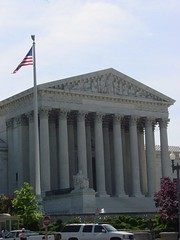Occasionally I run a post updating some of the resources that are available through this blog for people with special education issues. The resource items are found on the left-hand side of the blog. The most important thing is to subscribe to the blog. In the internet world, there is credibility in numbers, so please spread the word. We now have a large number of subscribers and that makes it easier to be taken seriously. Maybe if enough people subscribe, the next candidates for president will answer our inquires. There are three ways to subscribe and all are absolutely free. One is to receive our posts by email. The second way involves obtaining our posts through an RSS reader or aggregator. The third method only works if you have a blog or website. If so, you can embed a special ed law blog widget (or blidget= blog widget) directly in your own blog or website. A big thanks to all subscribers.
My Twitter mini-posts or "tweets" also appear on the left-hand side of the blog. A number of people also follow us on Twitter.
The section entitled Helpful Links includes direct links to several federal government sites, including IDEA.gov, that includes a searchable data base with the federal statute and regul as well as ationsOSEP guidance documents. Other links include the NICHCY information clearinghouse and the CADRE website for special ed dispute resolution. If you use Facebook, there is a link to the Facebook special education law group. Among the other social network special ed law groups linked there are the Ning group and the LinkedIn group. These groups offer additional resources and very active discussion groups.
Under the Heading Other Education Blogs are links to some really good education blogs that I read and enjoy. I am very selective in adding links to this blog. I believe that the ones listed are of very high quality and usefulness.
There are also registration links to conferences that I recommend. There follows a blidget carrying the headlines of the Daily Smart Brief by the Council for Exceptional Children. (This is an example of one type of blog widget.) A link to the daily education news and blogs carried in Blognetnews follows.
The Archive for this blog and the blog search tool are handy when you may be looking for information on special education law. Just type in a word or phrase and you will get results of posts that may have mentioned the key word or phrase. This is a nice research tool.
The "Important Please Read" disclaimer is very, very important. I am an impartial. I work as a hearing officer or mediator, and as a consultant for states and a conference speaker. I never represent parents/students or school districts. For the same reasons, I avoid cause invitations and social network groups that appear to advocate for one side or the other. I think that my impartiality adds credibility to this blog as well as to my work.
In addition to my impartiality, and for important legal reasons, I can never give legal advice or discuss actual situations or personally identifiable information. I often suggest that readers make a comment or join one of the group discussions. Although I cannot give advice, other readers or group members may well have suggestions. With the large number of diverse groups of stakeholders who subscribe to and read this blog, help may be a comment away. Almost all readers who have contacted me understand these reasons for my not giving advice, and I thank them for their understanding.
After some information about me and some photos of me being a hearing officer, are our periodic polls. These are fun exercises but they are not scientific polls or anything approaching that level of sophistication or measurement. But they do show intensity on some issues as well as the diversity of our readership. The current poll question is: Given the recession, should cost/money be a defense in special education cases. Please exercise your right to vote.

![Reblog this post [with Zemanta]](http://img.zemanta.com/reblog_e.png?x-id=b70d8ee8-7636-4861-910c-a611b9046bee)

![Reblog this post [with Zemanta]](http://img.zemanta.com/reblog_e.png?x-id=7c0e4e45-38f9-461f-8887-8b071418e7ab)

![Reblog this post [with Zemanta]](http://img.zemanta.com/reblog_e.png?x-id=cbe55227-3b92-4012-bb1b-0bc7a0c1621e)

![Reblog this post [with Zemanta]](http://img.zemanta.com/reblog_e.png?x-id=0d659279-9e97-466a-a950-b9b728534cd3)



![Reblog this post [with Zemanta]](http://img.zemanta.com/reblog_e.png?x-id=112b3818-94ea-4fd1-9ff1-92937543ece5)









